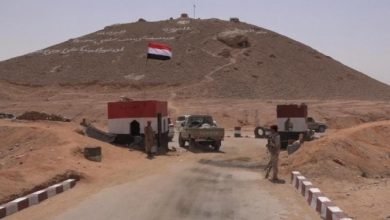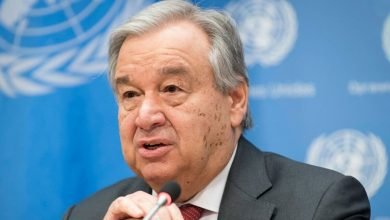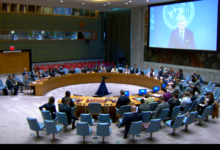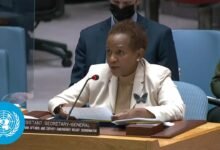Yemen… Why has the STC become main representative of the southern cause?

SMA NEWS – MOSCOW
The Southern Transitional Council (STC) is the largest political formation in the southern governorates of Yemen since the signing of the unity between the state of the south and the Republic of Yemen, where the nascent political entity turned into a political and military force on the ground in a short period.
What are the forces that formed the council and their relationship to the southern movement.. is it the main carrier of the southern cause?
At the beginning, the leader in the Southern Movement, Badr al-Din Henda, says that “the Transitional Council is an extension of the revolutionary movement of the south and the culmination of the struggle of the Southern Movement, and the heir of the peaceful movement in general.”
Strategic objective
Henda added in his speech to “Sputnik”, “that the Transitional Council represents the vast majority of the political forces and the dynamic and popular components of the South, and it approaches and follows the strategic goal of the people of the south led by the revolutionary movement, which is represented in the liberation of the south from the Yemeni occupation, and the restoration of the state of the people of the south with full sovereignty on their land according to its internationally recognized borders before May 22, 1990.
Henda continued, “The Transitional Council seeks to achieve the goals that the movement was working to achieve, by finding a leadership for the South that preserves the interests of the people and respects the interests of the countries and peoples of the world, as well as working to find a regional or international incubator that helps the people of the south restoring their state, and works through its relationship with some countries is to achieve this goal, and this does not mean subordination to regional or international bodies, and there are distinguished relations for many countries with each other, and it is the same path taken by the Transitional Council to find a special relationship with some countries that stand and help the people of the south, to achieve their aspirations and ambitions in achieving their full goals of freedom, independence, and the restoration of their desired state.
Difficult stages
For his part, the military and strategic expert, Thabet Hussein, says that “the southern issue has gone through difficult stages, and has witnessed a relatively long period with the presence of many components and the struggle over leadership and the spawning of new components, whether it was from the authority in Sana’a or among the leaders of the components whose number ranged more than 20 components at the time, with each component claiming to represent the Southern cause.
Hussein added in exclusive statements to “Sputnik”, “In fact, and in the midst of this amount of components, there were large, most popular currents, such as the Supreme Council of the Southern Movement, the Revolutionary Council and other components that were supported by former President Ali Salem al-Beidh and leader Hassan Baoum, the obstacle for the southerners was how to find a political component that would be representative, inclusive, and political bearer of the southern cause, so the establishment of the Southern Transitional Council in May 2017 came as a response to this demand and this urgent and necessary challenge.
Founding of the Council
The strategic expert continued, “The council included, during the founding period, all the political components that existed at that time, including parties and other political organizations. The matter was not limited to the components of the Southern Movement only, but rather included parties and other political organizations that were not in the movement, in other words, the Transitional Council. It was the result of long efforts of dialogue and organizational work to form the council, which included all the governorates of the south, with a greater proportion of Aden and Hadramout because of their political and economic importance.
Hussein indicated that the Southern Transitional Council, since its inception, has obtained unprecedented popular support, as I have lived through and followed the entire march of the Southern Movement, I have not seen a crowd and popularity as it is with the Southern Transitional Council, and any component that claims to compete with the Transitional Council, we have not seen popularity or military influence for it on the ground.
Protest movements
Hussein explained that, “The Southern Movement is not a component and not a party, rather, it is a term used to describe the protest movements against Sana’a regime, which for those movements turned into an occupation regime, as these movements originated in the south since 2007.”
The military expert pointed out that, “The Transitional Council is currently at the fore in representing the southern issue, and this was clear and reflected in the Riyadh Agreement, which was signed between two parties without third parties, the south, represented by the Transitional Council, Yemen in general and the legitimate authority, and the world and the Gulf states are now dealing with this council. It is true that there are components that are still outside the council, but they do not represent the momentum and weight that the Transitional Council represents in terms of popularity, military and security on the ground, and recently the council is conducting a dialogue with some components that have reservations or suggestions on the council’s program and policies.
Fierce war
Hussein stressed that, it is time to support the Southern Transitional Council, especially as we are presenting a political settlement that may be final and in which the Transitional Council will participate in accordance with the Riyadh Agreement to support the Transitional Council, despite the difficulties and complications it faces, and the fierce war waged by the Council’s opponents, but despite all of this, it is growing in strength and popularity.
It is noteworthy that after the North “Sana’a” settled the 1994 war and its victory over the South, a large group of southern soldiers turned to form armed resistance movements, the first of which was the Moj movement, then Hatm, Taj, and the People’s Committees, the most powerful of them was the Hatm movement, which was founded by then Captain Aidarous Al-Zubaidi, who was sentenced to death in 1998 and has been chased in the mountains for many years.
After 2001, things changed and most of the resistance movements disintegrated or faded due to subjective and objective factors, but the majority of southerners remained rejecting the reality imposed on them by force since 1994, a reality that many of them considered a northern military occupation and a violation of unity, after the northerners took the victor’s approach, and were celebrating every year on the anniversary of the defeat of the southerners on July 7 of each year, almost all of the southern army, including its senior commanders, was demobilized and left without work.
By the year 2005, meetings began that brought together a number of former southern army commanders and southern politicians to coordinate and consult on how to reject the imposed reality, which was then known in 2006 as the Reconciliation and Tolerance Movement, a movement that was suppressed, and its meetings were banned, and its headquarters in Aden closed, which caused widespread anger.
For their part, at the same time, a number of Southern Army leaders were coordinating to announce the Southern Military Retirees Association, which was known as the core of the Southern Movement, as it was the first to call on southerners to stage major demonstrations to reject the situation, and raise the flags and slogans of their former state, which is what actually happened, as the Southern Movement was announced on July 7, 2007, on the anniversary of the fall of Aden to the northerners.
The Southern Movement led a large-scale protest movement that included all of the South and was faced with repression, arrests, and chase campaigns, despite the repression, the movement expanded and began to pursue all methods of peaceful struggle, when the Houthis “Ansar Allah” took control of Sana’a in 2014, the southerners prepared to regain their state and decided to lead the movement and the southern resistance that had established, and restructured and trained by Aidarous Al-Zubaidi, starting in 2010.
In May 2017, the formation of the Transitional Council was announced, and this nascent formation enjoyed wide popular support in the South, where hundreds of thousands took part in demonstrations in the streets of major southern cities such as Aden and Mukalla to declare their support for the Transitional Council, which requested authorization from the southerners and considered that it was obtained in a million-million demonstration in Aden 11 May 2017, Aidarous al-Zubaidi succeeded in strengthening the pillars of the Transitional Council and expanding its activities, and today it has become the most powerful, most prominent, most organized and loyal southern entity since the defeat of the southerners in 1994, then entered into negotiations with the government under Saudi sponsorship, and the Riyadh Agreement was concluded on 5 November 2019.







